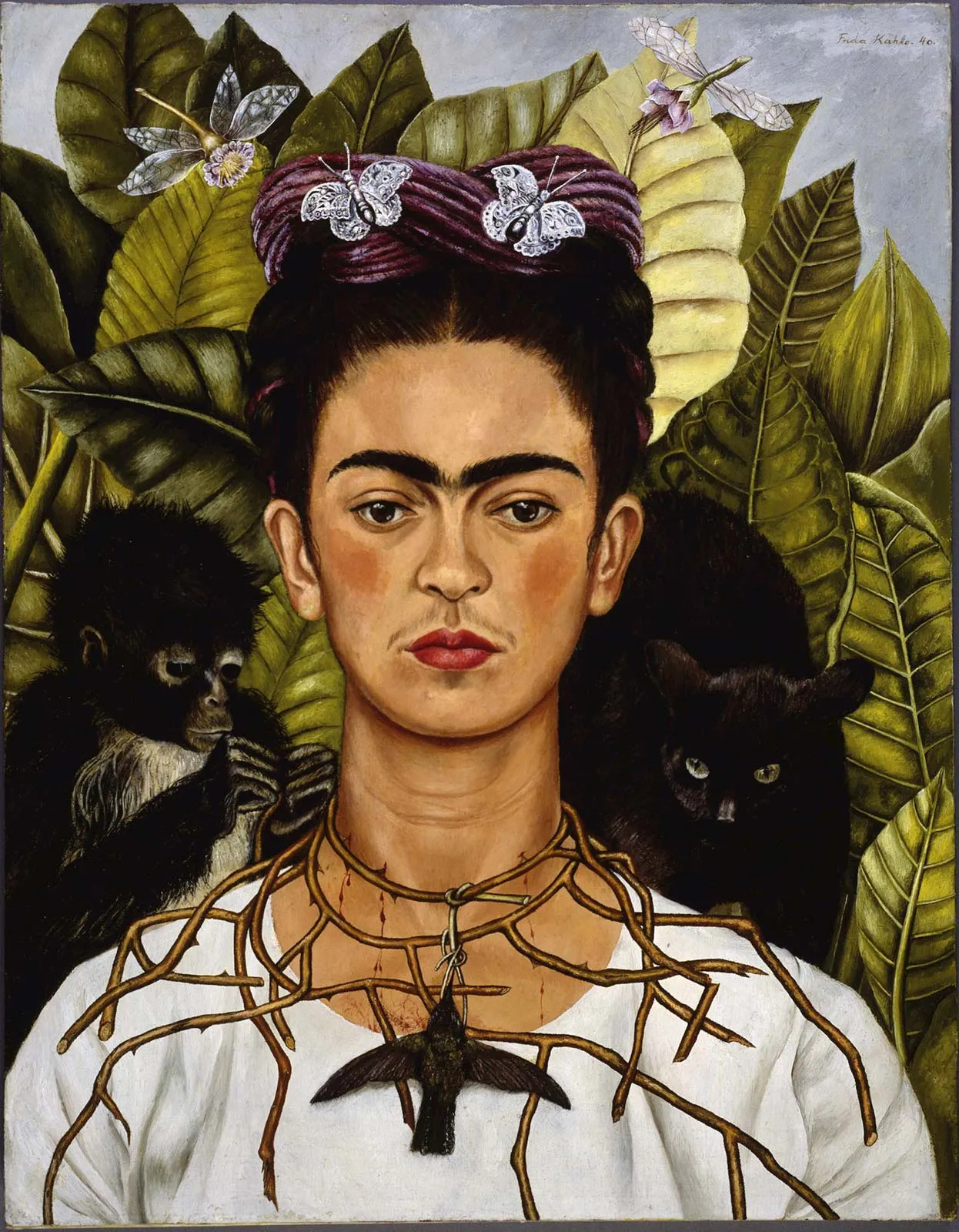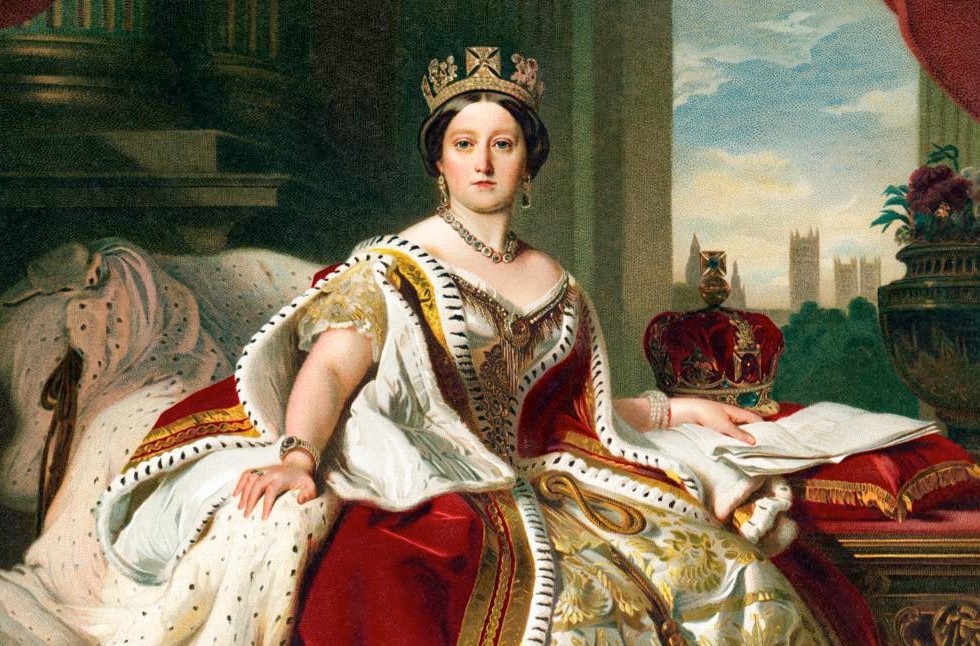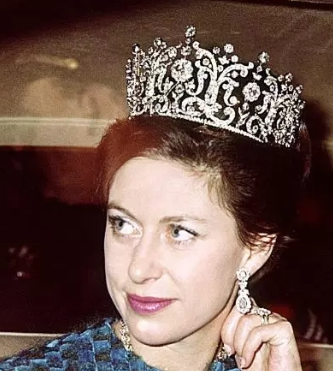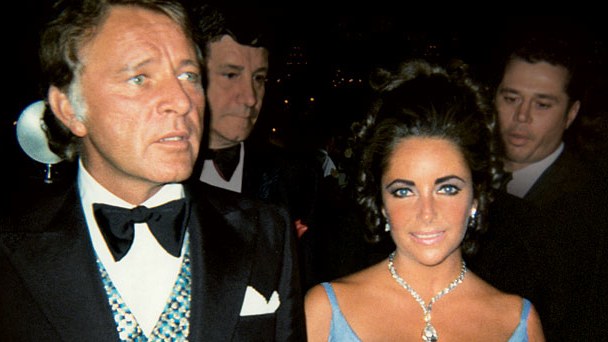On Aug. 28, 1963, Dr. Martin Luther King, Jr. stood on the steps of the Lincoln Memorial and delivered his rousing, “I Have a Dream” speech to over 250,000 civil rights supporters gathered for the March on Washington. The speech calls for an end to racism in America. It was considered by many to be the most important speech of the Twentieth Century and helped advance President John F. Kennedy‘s important civil rights legislation then in Congress.

At the March on Washington, August 1963, peaceful African-Americans called for decent jobs with equal pay.
Dr. King timed his March on Washington to coincide with the 100th anniversary of Abraham Lincoln‘s signing of the Emancipation Proclamation which freed millions of American black slaves in 1863.

Dr. Martin Luther King, Jr. stands in front of the statue of President Abraham Lincoln at the Lincoln Memorial, Washington, D.C. ca. 1963
His opening lines in his speech evoke the Gettysburg Address by President Lincoln:
Five score years ago, a great American, in whose symbolic shadow we stand today, signed the Emancipation Proclamation. This momentous decree came as a great beacon light of hope to millions of Negro slaves who had been seared in the flames of withering injustice. But one hundred years later, the Negro still is not free. It came as a joyous daybreak to end the long night of captivity.”
Dr. King asked for justice to be made a reality for all of God’s children.
We can never be satisfied as long as the Negro is the victim of the unspeakable horrors of police brutality. We can never be satisfied, as long as our bodies, heavy with the fatigue of travel, cannot gain lodging in the motels of the highways and the hotels of the cities….
We can never be satisfied as long as our children are stripped of their selfhood and robbed of their dignity by signs stating “For Whites Only”. We cannot be satisfied as long as a Negro in Mississippi cannot vote and a Negro in New York believes he has nothing for which to vote. No, no, we are not satisfied, and we will not be satisfied until justice rolls down like waters and righteousness like a mighty stream. “(1)
He spoke of his dream.
I have a dream that one day this nation will rise up and live out the true meaning of its creed: ‘We hold these truths to be self-evident: that all men are created equal.’
I have a dream that one day on the red hills of Georgia, the sons of former slaves and the sons of former slave owners will be able to sit down together at a table of brotherhood.'”
***
Fast forward to August 28, 2013, the 50th anniversary of Dr. King’s March on Washington and his landmark speech.
Anderson Cooper of CNN is interviewing African-American writer Maya Angelou (1928-2014). They reflect on the state of Dr. King’s dream. Maya Angelou knew Dr. King and was part of the struggle for civil rights change in this country.
Cooper: Do you believe that the arc of history is moving in the right direction? President Obama, recently, when he was talking about Trayvon Martin, he said that he looks at his daughters and that his daughters’ generation is better than his generation was. Do you believe that?
Angelou: Yes, I do. I know that there was a time when people were lynched with everybody’s agreement – not everybody – but with the “Might’s” agreement. The might was white and white was might and so people were lynched.
I grew up in a village in Arkansas where a man was lynched and the skin of his body – after being lynched and burned – the skin was taken off in skin the size of a postage stamp and given to people as mementoes.
You can’t do that in the United States today. I mean you can lynch people and murder people in many ways but you can’t do it in the city square.
Cooper: Hmm.
Angelou: You see? We are better. Not nearly enough. Not nearly enough. But we come and we have to admit that. Because, Mr. Cooper, if we don’t, young people will say, ‘You mean to tell me, with the lives and deaths of Dr. Martin Luther King and Malcolm X and Rosa Parks and the Kennedys, then there’s no point in me trying, because those people were bigger than life.’ So we have to say, ‘You have come a long way.’
***

President Barack Obama spoke from the Lincoln Memorial steps to honor the half-century anniversary of Dr. Martin Luther King, Jr.’s iconic speech, “I Have a Dream.” August 28, 2013.
Our first African-American president was on hand at the Fiftieth Anniversary of the March on Washington Celebration. Like Dr. King, President Barack Obama is a great orator. In his speech to those gathered at the Lincoln Memorial, he echoed Maya Angelou’s sentiment in regard to the civil rights movement, progress, and where America stands.
To dismiss the magnitude of this progress, to suggest as some sometimes do that little has changed, that dishonors the courage and the sacrifice of those who paid the price to march in those years.”
Members of Dr. King’s family, including his then 5-year-old granddaughter, Yolanda King, were present as bells rang at 3 p.m. to mark the historical moment.
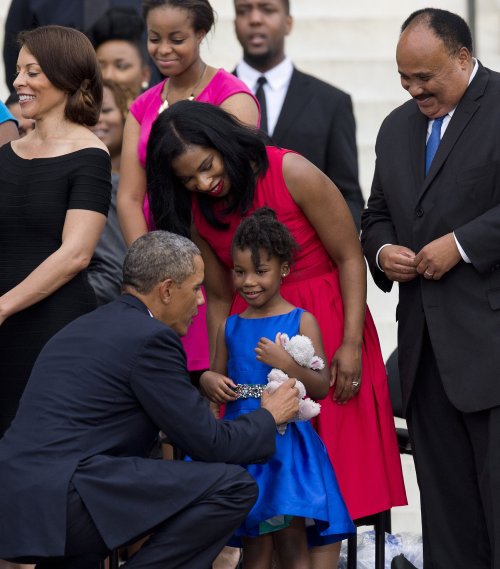
President Obama greets Yolanda King, age 5, Dr. Martin Luther King, Jr.’s granddaughter at the 50th Anniversary of the March on Washington. August 28, 2013. Credit; Getty Images
For more on Maya Angelou, click here.

